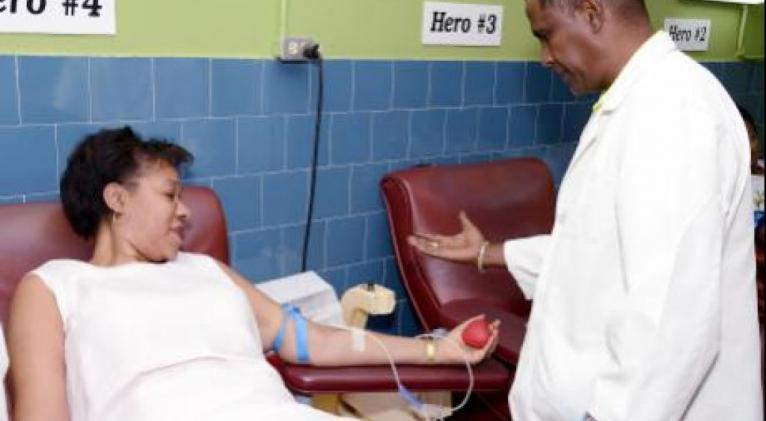The Cubans Care - Ambassador, Embassy Staff, And Others Answer Jamaica's Call For Blood Donations Amid Dengue Outbreak

Cuban Ambassador to Jamaica Ines Fors Fernandez, other Cuban diplomats, staff at the embassy, as well as Cuban doctors, nurses, and teachers working in the island have responded strongly to the call for blood donations in the wake of the outbreak of dengue haemorrhagic fever in Jamaica.
Last Friday, several Cubans travelled to the 'Blood Bank' on Slipe Pen Road in Kingston to make donations in support of the call.
"We are not rich people. We come from a small, poor, underdeveloped, and blockaded country for almost 60 years. ... But we have never felt alone. In the most difficult moments, there were always brothers and sisters who offered us a hand. Jamaica was one of them," press officer at the Cuban Embassy Richardo Calvo Aguila told The Sunday Gleaner.
Aguila, who was also a donor last Friday, said that they were responding to the call made by "Dr Dayton Campbell, opposition spokesman on health, and endorsed by Dr Jacqueline Bisasor McKenzie", chief medical officer in the Ministry of Health.
"Blood is life. A blood donation can save a life. There is no more symbolic way to demonstrate our appreciation for our sister nation, Jamaica, and our commitment to its people. When we offer our blood, the phrase is not for anyone to say you are welcome, but for us to say thank you, Jamaica, for the opportunity to help," declared Aguila.
Dr Jose Armando Arronte Villamarin, national coordinator of the Cuban Medical Brigade in Jamaica, added that "the blood donation is in support of the people of Jamaica for their outbreak of dengue haemorrhagic fever".
Culture In Cuba
He said that blood donation is a culture in Cuba as citizens voluntarily give blood anytime.
"I have given more than 30 units of blood over time. Among Cuban people, it's what we do voluntarily," said Villamarin as he pointed out that the success of Cuba's healthcare, one of the best in the Americas, is based on education.
"In Cuba, we have the family doctors programme, where the doctors and nurses live within the communities. They give education activities to the communities because they (residents) must do things in their house and in the environment. They must clean the backyard and remove all deposits of water to eliminate breeding sites," added Villamarin.
He said that persons with fever would be isolated.
"Fever cases would have been identified and immediately quarantined to prevent transmission. It would not make sense to have infected persons remain in communities and continue transmission," he explained.
Blood donation organiser at the National Blood Transfusion Service Igol Allen said that they welcome the contribution of the Cubans.
"We see this as part of the continued support of the Cuban people for Jamaica, and we appreciate them coming out. It helps to further our goals of having more units of blood in the system to help more people," said Allen.













Add new comment